Hui Muslims Afraid of Becoming as Suppressed as Uyghurs
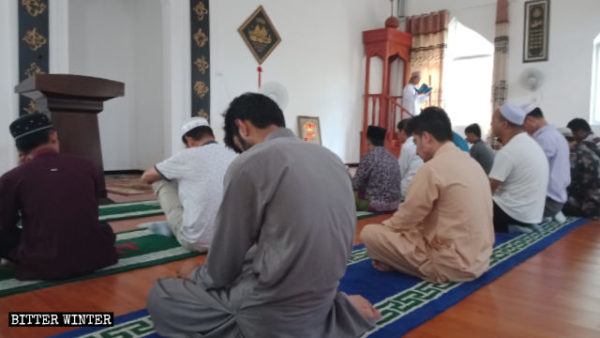
Bitter Winter, 13 June 2019
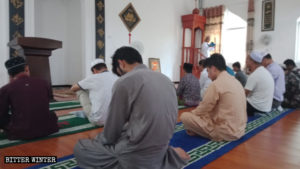 By Cai Congxin – Though hailed as the “good Muslims of China” for years, the Hui ethnic minority is witnessing the increasing suppression by the authorities throughout the country. The old narrative distinguishing between Uyghurs and Muslins outside Xinjiang is being gradually abandoned, the new policy seems to be targeted at all Muslims. Bitter Wintervisited some provinces with high Hui populations to investigate the situation.
By Cai Congxin – Though hailed as the “good Muslims of China” for years, the Hui ethnic minority is witnessing the increasing suppression by the authorities throughout the country. The old narrative distinguishing between Uyghurs and Muslins outside Xinjiang is being gradually abandoned, the new policy seems to be targeted at all Muslims. Bitter Wintervisited some provinces with high Hui populations to investigate the situation.
Prohibited from praying at home
In March, Hui Muslims in Huangshi prefecture in the central province of Hubei were notified that they couldn’t privately organize Jumu’ah – also known as Friday or Congregational Prayer that Muslims hold every Friday, just after noon – at home.
“Having discovered that some Muslims were privately holding Jumu’ah at home, the central inspection team convened a meeting of the persons in charge of mosques to notify them that Friday Prayers could only be performed in mosques. If they are discovered doing it at home, the consequences will be dire,” said a local Muslim. “The only mosque in the vicinity is tens of kilometers away. Aren’t they making things difficult for us?”
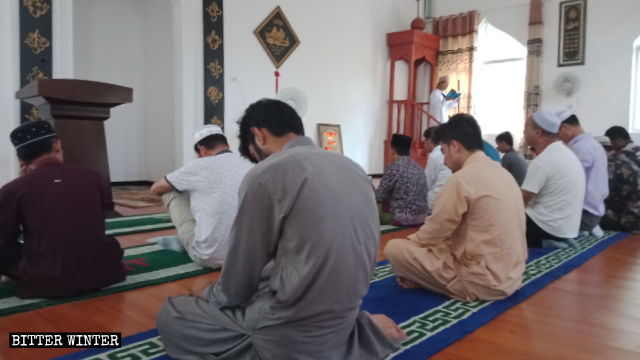
In May, the police came to warn a Muslim who runs a noodle restaurant in the prefecture, not to hold Jumu’ah with his family. “They said that control is very rigorous now. If there is a gathering of three or more people, it is deemed illegal,” the man remembered his interaction with police officers.
Pressured by the government, Muslims had to comply. “People don’t dare perform Jumu’ah with their family. As Muslims, how can we not perform Jumu’ah? This is our faith. The government has gone too far,” continued the noodle restaurant owner.
And the restrictions on other religious activities are becoming increasingly strict, suppressing traditions and customs of the Hui people. In July last year, the local religious affairs department prohibited a mosque in Dalian city in the northeastern province of Liaoning from holding its annual out-of-town study-and-exchange activity on the grounds that there were too many people, which could cause a disturbance.
“We don’t dare to wear white skullcaps”
“When we go out wearing white skullcaps or prayer caps, traditionally worn by Hui men, we are often questioned or fined for no reason. Particularly in places like the train station, the police are often inspecting our ID cards to check whether we have a criminal record. We don’t dare to wear them in public places,” an ethnic Hui owner of a restaurant in the northern province of Hebei told Bitter Winter. “It isn’t like Xinjiang yet, where anyone found wearing a white skullcap or growing a long beard is arrested. Nevertheless, it feels like we’re being suppressed in every respect. Approval procedures for Hui shops are also extremely strict. If Arabic symbols aren’t removed from signboards, a fine of 20,000 RMB (about $ 2,9oo) will be imposed.”
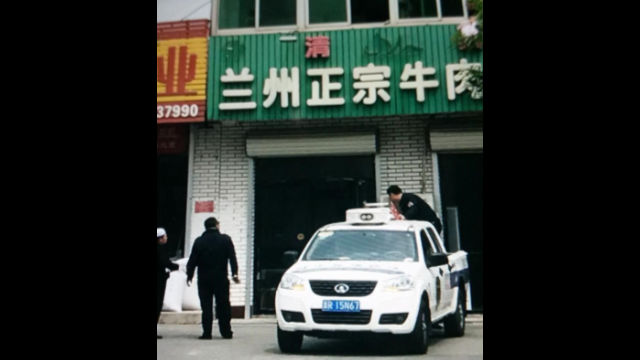
Islamic symbols purged
The campaign to remove Arabic symbols that the Hui restaurant owner mentioned is already widely underway in Hebei and other provinces. According to some data, from the end of April to mid-May, halal-related Arabic symbols were dismantled from the signboards of about 162 restaurants and shops in Hebei’s Langfang city.
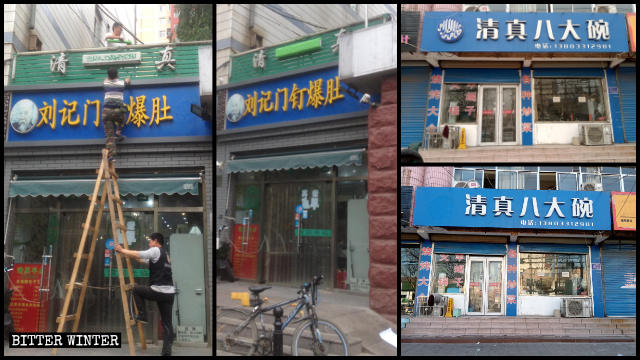
In Hebei’s Baoding city, Arabic symbols have been removed from about 280 shops. At some restaurants, scriptures hanging on the walls have been taken down, and halal symbols removed from menus and ovens.
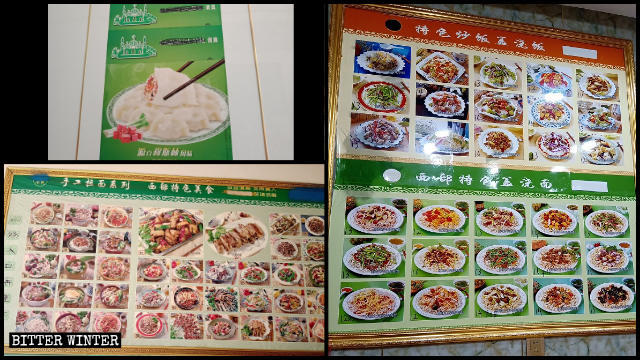
As this large-scale forced-dismantling campaign wages on, a sense of unease is spreading among the Hui people. This was evident even from the cautious manner in which some interviewed people responded to Bitter Winter’s questions.
“I just suspect that you’re a government inspector,” one Hui resident replied when asked a question. “I’m afraid that you will tell on me. Are you from the Civil Affairs Bureau?”
Some local Huis said that the government often sends anonymous inspection teams to investigate their religious practices, making them one of the key targets of government surveillance. If they are even slightly careless, they will bring disaster upon themselves.
“We’re all Muslims. Sooner or later, we’ll be put in a situation like that in Xinjiang. Haven’t symbols already started being dismantled? The Arabic symbols on food packaging have also been replaced. The government doesn’t care how much financial losses we suffer,” said an ethnic Hui man, not hiding his distress about the situation.
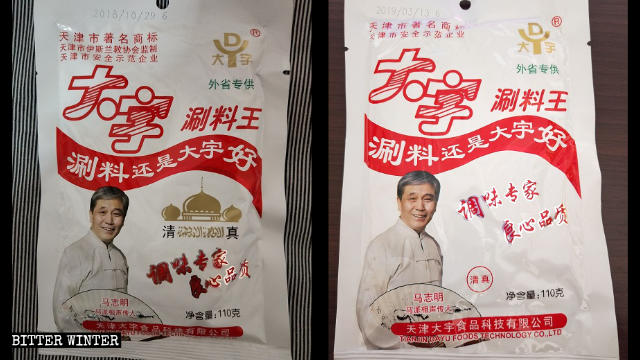
“It isn’t as simple as just removing symbols. For example, why should the national flag be raised at mosques? It isn’t enough just to do that: officials keep saying that the love of the country is greater than anything else. The government wants these things to penetrate deep into Muslims’ hearts. That’s a signal of danger,” concluded the man.
Arrested 20 minutes after forwarding a message
Online surveillance is also one of the important ways in which the government monitors the Hui people. A man from Hebei casually forwarded a post from his WeChat account, mentioning that the government doesn’t allow people to believe in Islam. Within 20 minutes, some officials got hold of him and forcibly took him away, saying that his message broke the law. The man was kept in a police station for two nights.
“I was fortunate this time because a friend helped me,” the man explained. “Otherwise, my case would be serious. If this happened in Xinjiang, I wouldn’t have gotten out. The state is extremely harsh in controlling ethnic minorities in our province through monitoring and positioning our mobile phones. No matter where we go, the police always know. I have to be careful when speaking on the phone now. If I say the wrong thing, it could lead to a catastrophe at any time.”

